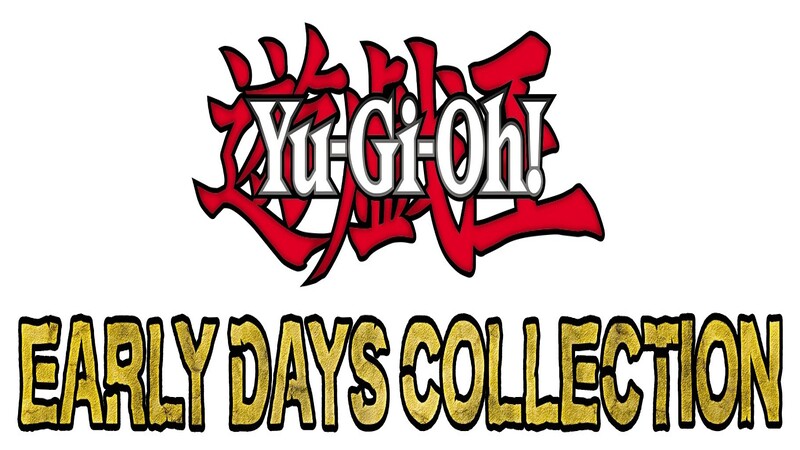The Yu-Gi-Oh! Early Days Collection is a long-awaited compilation that gathers some of the earliest Yu-Gi-Oh! Video games in one package, offering fans a nostalgic look at the franchise’s formative years. With 14 classic titles spanning the Game Boy, Game Boy Color, and Game Boy Advance, this collection serves as both a history lesson and a love letter to the early days of Yu-Gi-Oh! gaming. However, while the collection delivers on nostalgia, it struggles to modernize these classics for today’s audience. Issues such as limited multiplayer options, missing key titles, outdated mechanics, and inconsistent user interfaces prevent it from fully capitalizing on its potential. For die-hard Yu-Gi-Oh! fans, this collection might still be worth picking up, but casual players or those unfamiliar with these older titles may find the experience frustrating.
Developer & Publisher // Digital Eclipse, Konami
Platforms // Nintendo Switch, PC
MSRP & Release Date // $49.99, February 27, 2025
Reviewed On // Nintendo Switch
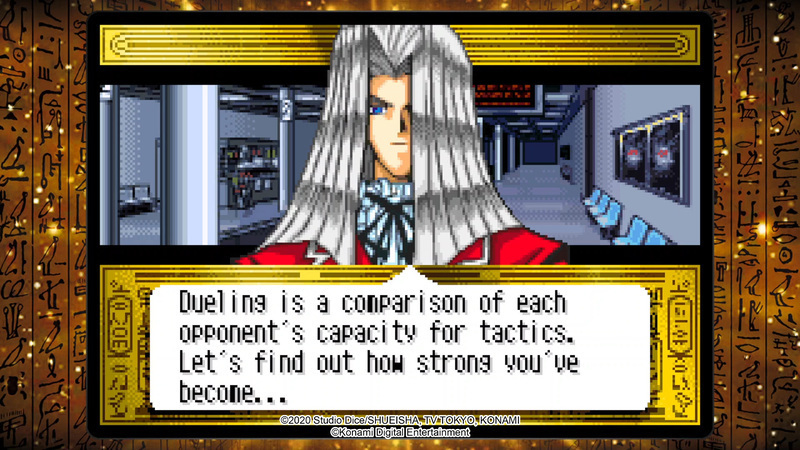
Game Selection: A Strong, Yet Incomplete, Lineup
The Early Days Collection compiles a mix of dueling games and spin-offs, covering different mechanics and interpretations of the Yu-Gi-Oh! Trading Card Game. However, not every game has aged well, and some fan-favorite titles are absent.
Here’s a breakdown of each game included in the collection:
Game Boy & Game Boy Color Titles (1998 – 2000)
Yu-Gi-Oh! Duel Monsters (1998, Japan-Only)
- The first-ever Yu-Gi-Oh! video game.
- Very basic dueling mechanics with only 721 cards available.
- Lacks modern TCG rules (no Tribute Summons, no proper spell/trap effects).
- Only for hardcore Yu-Gi-Oh! historians, as the gameplay feels extremely outdated.
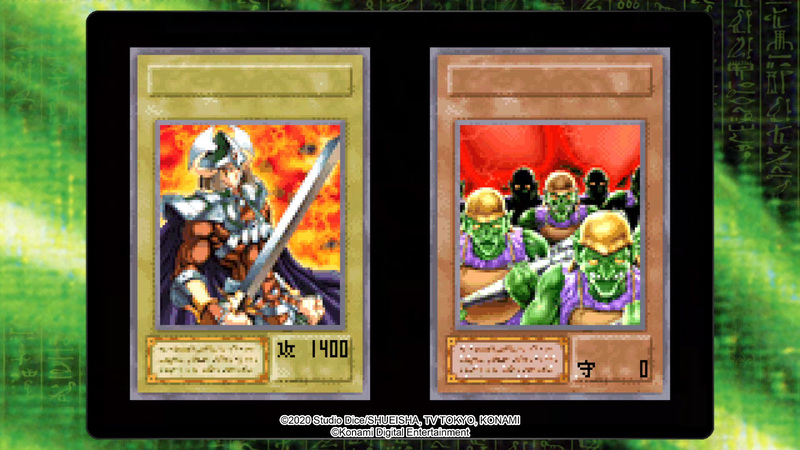
Yu-Gi-Oh! Duel Monsters II: Dark Duel Stories (1999, Japan-Only)
- Introduced basic fusion mechanics and slightly improved AI.
- Still doesn’t follow real TCG rules, making duels feel simplified.
- Not much different from the first game except for more cards and slightly better balance.
Yu-Gi-Oh! Duel Monsters III: Tri-Holy God Advent (2000, Japan-Only)
- The first game to introduce Egyptian God Cards, though they don’t function like their real-life counterparts.
- Improved graphics and animations for a better visual experience.
- Still has non-standardized TCG rules, which may frustrate competitive players.
Yu-Gi-Oh! Dark Duel Stories (2000, International Release)
- First Yu-Gi-Oh! game officially released outside Japan.
- Uses a simplified dueling system with RPG-like mechanics (cards have attack types similar to Pokémon elements).
- Very grind-heavy, as unlocking powerful cards requires excessive playtime.
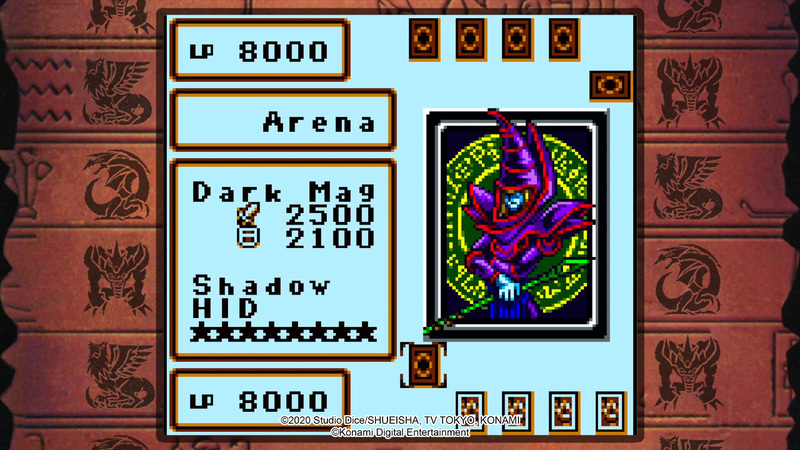
Yu-Gi-Oh! Duel Monsters 4: Battle of Great Duelists (2000, Japan-Only)
- Features three different versions, each focusing on a different duelist (Yugi, Kaiba, or Joey).
- Only one of the few games in the collection to support online multiplayer.
- Like the others, it still doesn’t follow proper TCG rules, making it feel outdated.
Game Boy Advance Titles (2001 – 2004)
Yu-Gi-Oh! The Eternal Duelist Soul (2002)
- One of the first games to fully implement official TCG rules.
- Features a campaign mode with duels against anime characters.
- Deck-building is slow and grind-heavy, but duels are fair and balanced.
- One of the better games in the collection for TCG purists.
Yu-Gi-Oh! Dungeon Dice Monsters (2001)
- A spin-off based on Duke Devlin’s dice game from the anime.
- Uses a unique board game-style system, rather than the traditional TCG.
- Fun and strategic, but poorly explained mechanics may confuse new players.
- My favorite spin-off from the series.
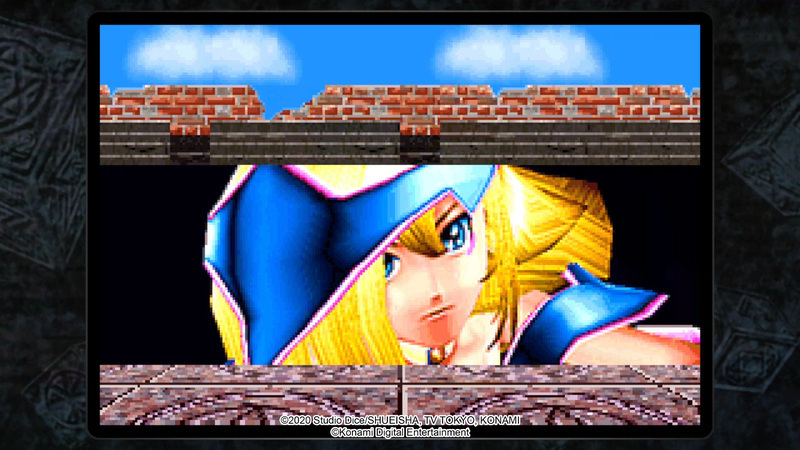
Yu-Gi-Oh! Worldwide Edition: Stairway to the Destined Duel (2003)
- A faithful adaptation of the TCG, following the 2003 card forbidden/limited list.
- Features a world tournament mode, where players duel against various AI opponents.
- One of the most balanced and enjoyable games in the collection.
Yu-Gi-Oh! World Championship Tournament 2004
- One of the best competitive Yu-Gi-Oh! games in the collection.
- Features over 1000 cards and the most accurate TCG mechanics of any game in this set.
- Lacks a story mode and is purely focused on tournament-style battles.
- The top pick of the collection for competitive dueling fans.
Yu-Gi-Oh! The Sacred Cards (2003)
- An RPG-style Yu-Gi-Oh! game that blends card dueling with story-driven elements.
- Follows the Battle City arc from the anime but takes major creative liberties.
- Not a true TCG simulator, but a fun RPG for fans of the anime.
Yu-Gi-Oh! Reshef of Destruction (2004)
- A direct sequel to The Sacred Cards, but notorious for its extreme difficulty.
- Features a unique, original story, making it stand out more.
- Unbalanced and frustrating for casual players due to its unfair AI and grinding.
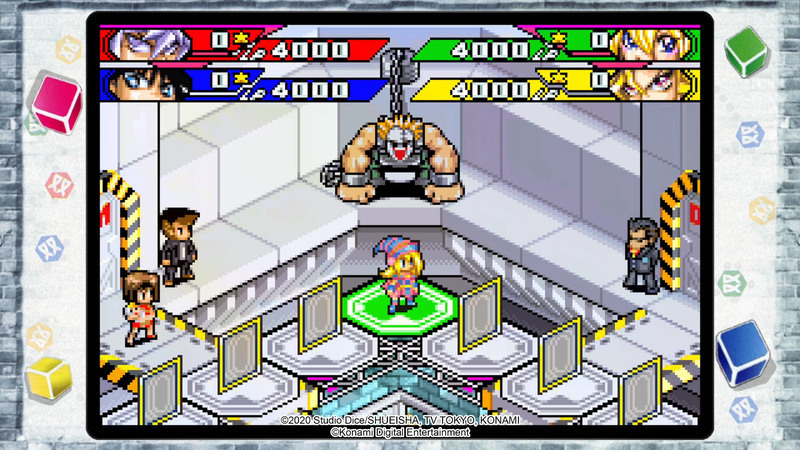
Yu-Gi-Oh! Destiny Board Traveler (2004)
- A board game-style spin-off where players roll dice to duel opponents.
- One of the most unpopular Yu-Gi-Oh! games due to its clunky mechanics.
- Feels more like a party game than a dueling experience.
Yu-Gi-Oh! GX Duel Academy (2004)
- The only GX-era game in the collection, set in Duel Academy.
- Features a ranking system where players rise through the academy by winning duels.
- One of the more modern-feeling games in the collection, but still outdated by today’s standards.
The Yu-Gi-Oh! Early Days Collection omits some fan-favorite Yu-Gi-Oh! games, which is a big disappointment.
Yu-Gi-Oh! Forbidden Memories (PS1), Yu-Gi-Oh! The Falsebound Kingdom (GameCube), Yu-Gi-Oh! Capsule Monster Coliseum (PS2) are three titles that should’ve been included. These games offered unique takes on the Yu-Gi-Oh! formula and would have added variety to the collection. Without them, the compilation feels incomplete.
Gameplay & Mechanics: A Mixed Bag
Classic Duels: Simple Yet Clunky
While the collection offers a variety of playstyles, ranging from traditional duels to dice-based mechanics, the gameplay quality is inconsistent across titles. Most of the dueling games predate the official TCG’s modern rule set. That means there are no Synchro, Xyz, Pendulum, or Link Monsters. There are also limited spell/trap effects, making duels feel more simplistic. Fusion mechanics are basic, often requiring exact card matches rather than modern polymerization. For fans looking for a true-to-life Yu-Gi-Oh! experience, only a few games like World Championship Tournament 2004 follow proper TCG rules. The rest feel like simplified or alternative versions of the game.
Grinding for Cards: A Slow Process
Many of these older games rely on luck-based progression. This means no direct card purchases –and you only get packs from wins. Due to this, deck-building is slow, requiring many hours to build a competitive deck. Then you have the older AI being predictable, making matches repetitive after a while. Modern players will find this tedious compared to recent Yu-Gi-Oh! games, where card acquisition is faster and deck-building is more accessible.
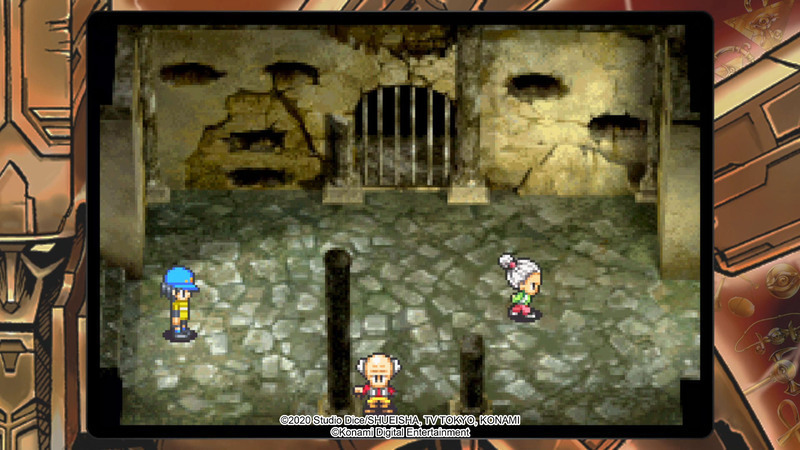
Presentation: Authentic But Outdated
The Yu-Gi-Oh! Early Days Collection faithfully recreates the original games, but that means they retain all the visual limitations of their original hardware. You will play games in low-resolution pixel art. There are some simplistic animations, like basic attack effects, but no 3D models. The collection has poor UI scaling, making the menus clunky and outdated. While some players will appreciate the nostalgic look, others may find the lack of modern enhancements, like smoother animations or upscaled visuals, disappointing.
Quality-of-Life Features: Good, But Not Enough
The Yu-Gi-Oh! Early Days Collection does a couple of things to try and help modernize these games. One of these new features is the addition of save states. This allows you to save anywhere instead of relying on in-game save points. There are some “cheat options,” allowing you to unlock all cards or boost in-game currency. Then, some visual filters slightly enhance the game’s appearance. However, some essential features are missing, like a fast-forward option. Battles feel slow without it. There is also no remastered soundtrack. So you only have the complete original MIDI music experience. These missing features make the experience less polished than it could have been.
Multiplayer & Online Features: Limited & Disappointing
One of the biggest disappointments in the collection is the lack of strong multiplayer support. Only ONE game (Duel Monsters 4: Battle of Great Duelists) supports online play at launch. I attempted to play eleven games online with a fairly good connection and was disconnected from my opponent six of those times. This leaves the rest of the games as single-player only. There is no other way to duel friends, and in addition to that, there is no cross-play or ranking system. For a franchise built around competitive dueling, this is a huge letdown.
Final Verdict: “A Duel with Nostalgia, But Not Without Its Flaws”
The Yu-Gi-Oh! Early Days Collection is an ambitious attempt to bring back the golden era of Yu-Gi-Oh! gaming, but it ultimately falls short at being a must-have collection due to inconsistent quality, missing fan-favorite titles, and outdated mechanics. On one hand, this collection is a treasure trove of history, showcasing how Yu-Gi-Oh! video games evolved from simple, experimental card battle mechanics into a more refined TCG experience. For longtime fans who grew up playing these games on Game Boy and Game Boy Advance, the nostalgia factor is undeniable—just seeing these pixelated duel arenas and hearing the old-school battle music will bring back memories of battling friends on link cables or grinding AI opponents for hours to unlock a Blue-Eyes White Dragon.
However, nostalgia alone isn’t enough to make this collection shine. The games themselves are not all created equal, but some still hold up today (World Championship Tournament 2004, The Eternal Duelist Soul), while others (Reshef of Destruction, Duel Monsters 1 & 2) feel too outdated, frustrating, or imbalanced to be fun. At the end of the day, Yu-Gi-Oh! Early Days Collection is a love letter to the franchise’s past, but not a carefully crafted one. It feels like a rushed compilation rather than a polished, definitive collection, and while the nostalgia factor is high, the gameplay experience itself is uneven. For hardcore fans of old-school Yu-Gi-Oh!, there’s enough here to justify a purchase, plus if you buy the physical versions you get one of two Quarter Century Rare “Harpie Feathers Duster.” For most players, this collection will feel more like an incomplete relic of the past rather than a gratifying experience.
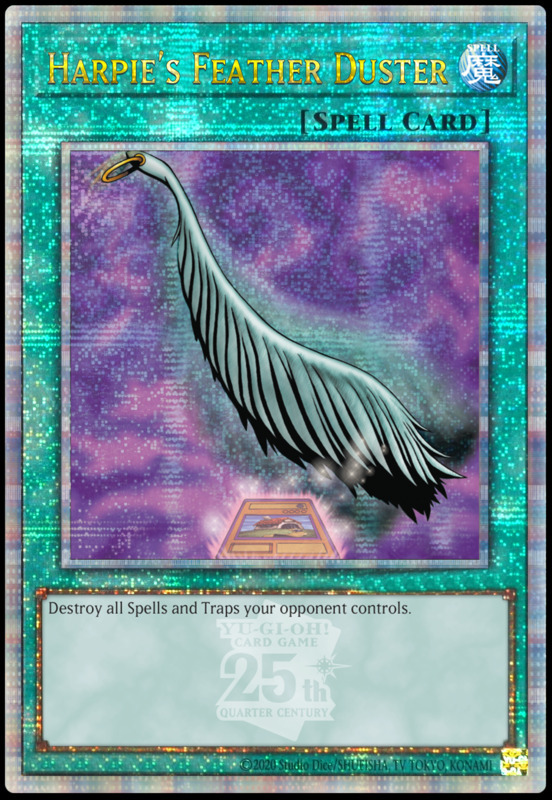
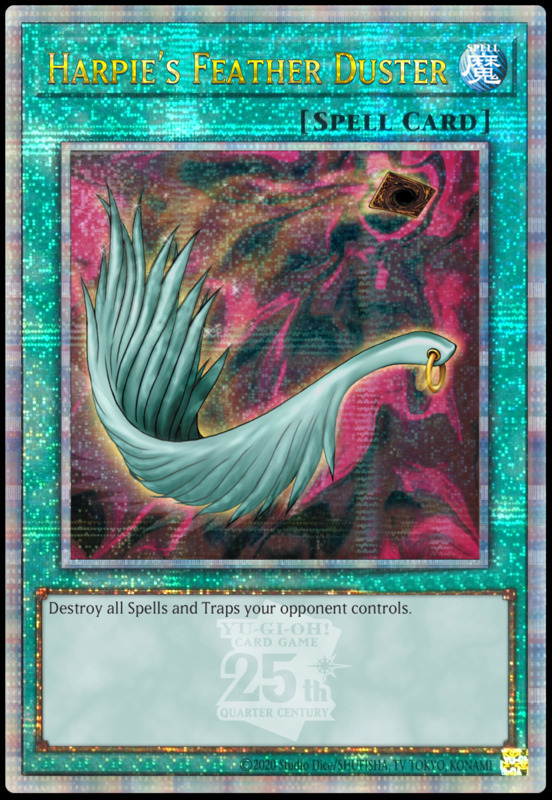
Final Score 6.5/10
Pros:
- 14 classic Yu-Gi-Oh! games in one package
- Some games (World Championship 2004, Eternal Duelist Soul) still hold up well today.
- Save states and cheats make gameplay more accessible.
- Great for collectors and Yu-Gi-Oh! historians.
Cons:
- Many games don’t follow real TCG rules, making duels feel simplistic.
- Dated graphics and clunky UI
- Limited online multiplayer
- Missing major fan-favorite titles
- Some games (Reshef of Destruction, Destiny Board Traveler) are too frustrating or gimmicky.

